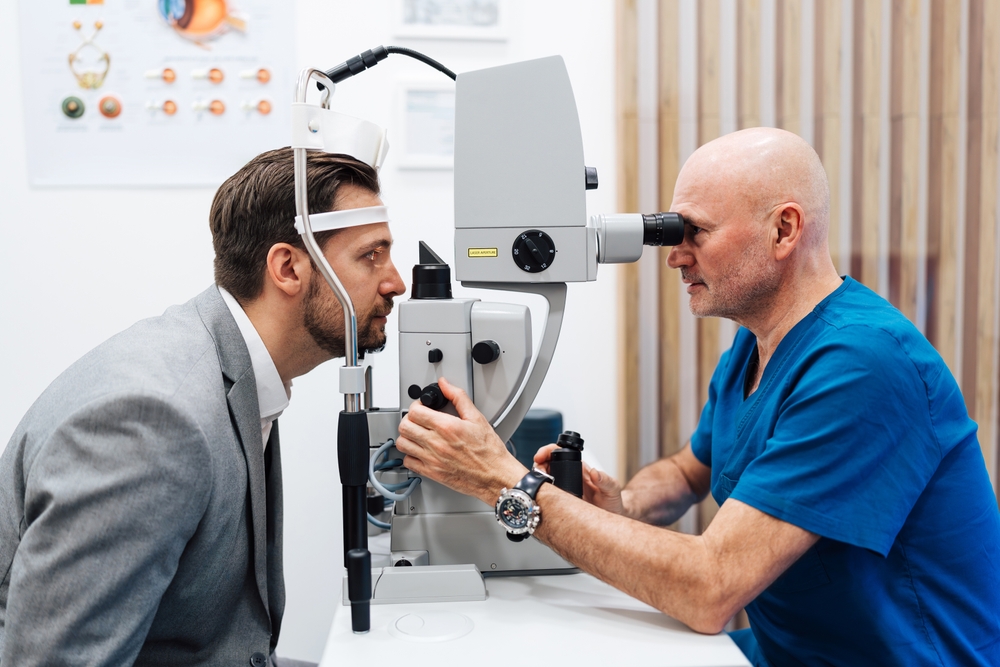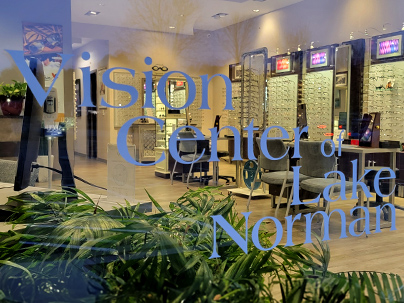Why a Vision Screening Isn't Enough: Understanding the Importance of a Comprehensive Eye Exam
Blog:Why a Vision Screening Isn't Enough: Understanding the Importance of a Comprehensive Eye Exam

While basic vision screenings serve a purpose, they are not a substitute for a comprehensive eye exam conducted by an optometrist. At Vision Center of Lake Norman, we want to help you understand the difference and why a full exam is critical to protecting your vision and overall health.
What Is a Vision Screening?
A vision screening is a brief assessment that checks for obvious vision problems. It often involves reading letters on a chart to measure visual acuity (how clearly you see at a distance). While screenings can detect some issues, such as nearsightedness or farsightedness, they have limitations.
Screenings typically:
Take only a few minutes
Are often performed by non-eye care professionals
Focus solely on vision clarity
Cannot detect early signs of eye diseases or underlying health conditions
What Is a Comprehensive Eye Exam?
A comprehensive eye exam goes much deeper. It’s a thorough evaluation of your entire visual system and eye health. At Vision Center of Lake Norman, we take the time to assess not only how well you see, but also the overall health of your eyes and how your eyes are functioning together.
During a comprehensive eye exam, we check:
Visual acuity (distance and near vision)
Eye movement and coordination
Depth perception and peripheral vision
Prescription for glasses or contact lenses (if needed)
Eye pressure (to screen for glaucoma)
Retinal health and optic nerve condition (using advanced imaging)
Signs of systemic diseases like diabetes, high blood pressure, and even autoimmune disorders
Why Regular Comprehensive Exams Are Essential
Many serious eye diseases such as glaucoma, macular degeneration, and diabetic retinopathy can develop without any noticeable symptoms in the early stages. Unfortunately, a simple vision screening is not designed to detect these conditions and will often miss them entirely.
Only a comprehensive eye exam can catch these issues early, especially when they’re most manageable and treatment is more likely to be effective. Even if your vision seems “fine,” regular eye exams are a critical part of maintaining long-term eye health.
Comprehensive eye care offers several key benefits. It allows for the early detection of eye diseases, leading to better outcomes. It also ensures you receive accurate prescriptions for glasses or contact lenses and helps track any changes in your vision over time. Additionally, these exams can provide insight into your overall health, as certain systemic conditions like diabetes or high blood pressure often show early signs in the eyes.
Children and Screenings
Parents often assume that if their child passes a school vision screening, there’s no cause for concern. However, these screenings are limited and can easily miss many common pediatric vision problems. Conditions like lazy eye (amblyopia), strabismus (eye misalignment), refractive errors (such as nearsightedness, farsightedness, and astigmatism), convergence insufficiency, and even focusing or tracking difficulties often go undetected during quick screenings.
Regular comprehensive eye exams are essential for making sure a child’s vision is developing properly. Since vision plays a critical role in learning, reading, and overall development, catching these issues early can make a significant difference in a child’s academic performance and confidence.
Protect Your Vision with the Care It Deserves
Whether you're managing existing vision concerns or simply staying proactive with your eye health, a comprehensive eye exam is one of the most important steps you can take. We’re here to provide thorough, personalized care for every member of your family.
Schedule a comprehensive eye exam with Vision Center of Lake Norman and take the first step toward clearer, healthier vision. Visit our office in Mooresville, North Carolina, or call (704) 200-9477 to book an appointment today.


